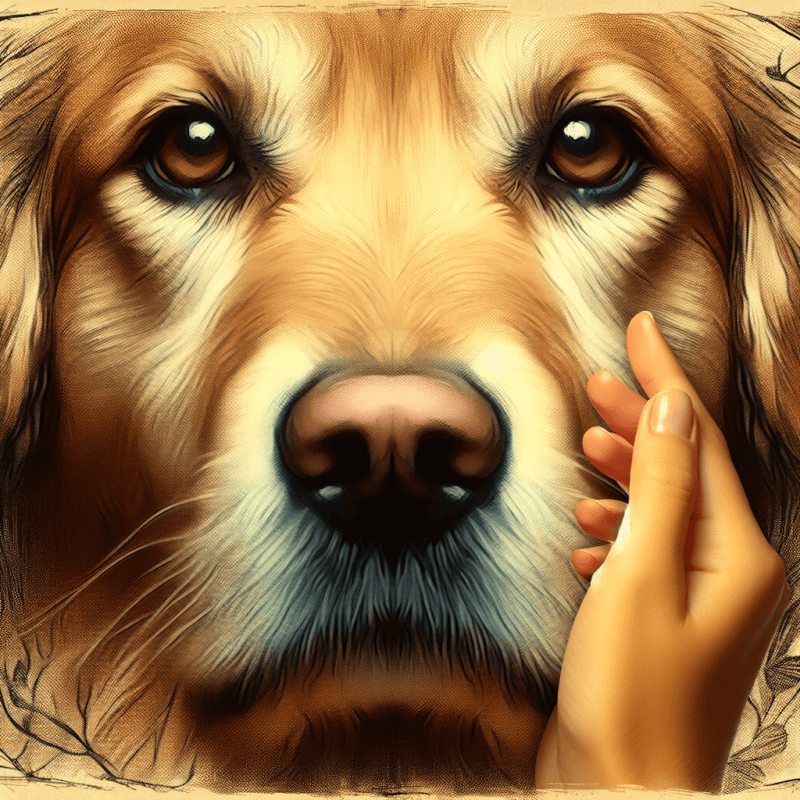Are you fascinated by the behaviors of our furry friends and have ever wondered how to turn that passion into a rewarding career? In this article, you will discover the essential steps on how to become a dog behaviorist. From understanding canine psychology to obtaining the necessary training and certifications, this guide will provide you with the valuable insights and resources needed to embark on this exciting and fulfilling journey. So, get ready to deepen your bond with our four-legged companions and make a positive impact on their lives as a dog behaviorist.
Education
To become a successful dog behaviorist, it is important to start your journey by earning a Bachelor’s degree in a relevant field. While there is no specific major in dog behavior, degrees in psychology, animal behavior, or biology can provide a solid foundation for understanding animal behavior. These programs often include courses that cover topics such as animal psychology, behavior modification techniques, and the science of learning.
Ready for Cat Trivia?
Test your knowledge about cats!

Once you have completed your Bachelor’s degree, you may choose to further your education by pursuing a Master’s or a Ph.D. in Animal Behavior. This advanced education will allow you to specialize in canine behavior and conduct in-depth research in this field. Having an advanced degree can also open up opportunities for teaching and conducting research in academic institutions.
Experience
Gaining hands-on experience with dogs is vital when pursuing a career in dog behavior. It is recommended to start by volunteering at animal shelters or rescue organizations. This allows you to interact with a wide range of dogs, observe their behavior, and understand the challenges they may face in different environments. Through this experience, you can also start honing your skills in assessing and analyzing dog behavior.
Additionally, consider working part-time or as an intern with professional dog trainers or behaviorists. This will give you the opportunity to learn from experienced professionals and acquire practical skills in working with dogs. The more time you spend working directly with dogs, the better you will become at understanding their behavior and addressing common issues.

Certification
While not mandatory, obtaining certification in dog training or behavior can greatly enhance your credibility and increase your chances of success as a dog behaviorist. There are various certification programs available, so it is important to research and choose one that aligns with your career goals and offers comprehensive training.
Certifications from reputable organizations demonstrate that you have met specific knowledge and skill requirements in the field of dog behavior. These programs often include coursework, practical training, and examinations to evaluate your understanding and proficiency. Being certified can also benefit your clients, as it provides them with reassurance that you have undergone formal training and are committed to professional standards.
Continuing Education
Staying updated with the latest research and methodologies is crucial in the ever-evolving field of dog behavior. Attending workshops, seminars, and conferences allows you to learn from industry experts, exchange ideas with fellow professionals, and expand your knowledge base.
Professional associations and organizations often host educational events tailored specifically for dog behaviorists. These events cover a wide range of topics, including new behavior modification techniques, advances in training methodologies, and the latest scientific findings in canine behavior. By actively participating in continuing education opportunities, you can stay ahead of the curve and provide your clients with the most effective and up-to-date solutions for managing their dogs’ behavior.

Skills
Developing excellent observation skills is fundamental to becoming a successful dog behaviorist. Dogs communicate primarily through their body language, so being able to accurately interpret their signals is essential. By observing dogs closely, you can gain insights into their emotional state, stress levels, and overall behavior patterns. This will enable you to identify potential behavior problems and develop appropriate intervention strategies.
In addition to observation skills, possessing good communication and interpersonal skills is crucial when working with clients and their dogs. As a dog behaviorist, you will often need to explain complex concepts and training techniques to pet owners. Being able to effectively communicate these ideas in a clear and compassionate manner will play a significant role in your success. Furthermore, having excellent interpersonal skills allows you to build trust and rapport with your clients, fostering a positive working relationship.
Knowledge
To effectively address dog behavior issues, it is important to have a comprehensive understanding of dog behavior and body language. This includes knowing how dogs communicate with each other and with humans. Understanding their cues, such as facial expressions, tail wagging, and ear positions, can provide valuable insights into their emotional state and intentions.
Furthermore, learning about different dog breeds and their specific traits is crucial. Each breed has its own behavioral tendencies, which can greatly influence their responses to training and socialization. Having knowledge about breed-specific characteristics allows you to tailor your behavior modification plans to meet the unique needs of each individual dog. Additionally, it helps you educate dog owners about potential challenges they may face based on their dog’s breed.

Work Environment
As a dog behaviorist, you have several options for your work environment. Some professionals choose to work as freelance dog behaviorists, providing services to clients on a one-on-one basis. This allows for greater flexibility in terms of setting your own schedule and working with a diverse range of dogs and their owners.
Alternatively, you may consider working at a veterinary clinic or an animal behavior center. These settings often provide a steady stream of clients, access to specialized equipment and resources, and opportunities to collaborate with other professionals in the field. Working in a team environment can provide valuable support and expertise, especially when dealing with complex behavior cases.
Ethics and Professionalism
Adhering to ethical guidelines is of utmost importance when working with animals as a dog behaviorist. This includes putting the well-being and safety of dogs as your top priority. Avoid using punitive or aversive training methods that may cause unnecessary harm or distress to the dogs. Instead, focus on positive reinforcement techniques that promote learning and build a strong bond between dogs and their owners.
Maintaining professionalism in all client interactions is crucial for building trust and credibility. This means being punctual, respectful, and maintaining confidentiality. It is also important to set realistic expectations with clients and provide them with honest assessments of their dog’s behavior and potential outcomes. By upholding ethical guidelines and demonstrating professionalism, you establish yourself as a reputable and trusted dog behaviorist.

Networking
Joining professional associations for dog behaviorists provides an opportunity to connect with other professionals in the field and stay updated on industry trends. These associations often offer networking events, conferences, and online discussion forums where you can engage with like-minded individuals, share knowledge, and collaborate on challenging behavior cases. Networking can lead to valuable partnerships, referrals, and ongoing learning opportunities.
Building a strong professional network is not only beneficial for your career but also for the dogs you work with. Through networking, you may find specialists in other areas, such as veterinary medicine or animal nutrition, who can provide additional support and expertise. Collaborating with other professionals can ensure holistic care for dogs and help address behavior issues from a multidisciplinary perspective.
Business Skills
While your primary focus as a dog behaviorist is understanding and modifying dog behavior, it is also important to possess basic business and marketing skills. If you plan on starting your own practice, having a solid understanding of business principles will be essential for success. This includes creating a business plan, managing finances, marketing your services, and building a client base.
Consider taking courses or workshops on business and marketing to develop these essential skills. Learn how to effectively promote your services, create a strong online presence, and build positive relationships with clients. Being knowledgeable in business practices will not only help establish and grow your practice but also ensure the long-term sustainability of your career as a dog behaviorist.
Becoming a dog behaviorist requires dedication, ongoing education, and a genuine passion for working with dogs. By following these steps and continuously refining your skills, you can embark on a rewarding career that allows you to make a positive impact on the lives of dogs and their owners. Remember, building a successful career in dog behavior is a journey, so embrace the learning process and enjoy every step along the way.



